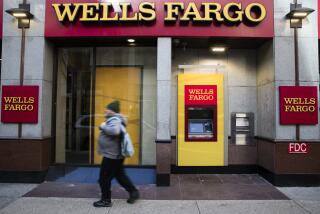Qualcomm Declares First Dividend
- Share via
Wireless technology firm Qualcomm Inc. said Tuesday that it will start paying a dividend to stockholders, becoming the second tech titan to opt to share some of its capital directly with investors after years of piling up cash.
The San Diego company’s announcement follows Microsoft Corp.’s decision last month to pay its first dividend. Both firms said their motivation wasn’t rooted in the Bush administration’s proposal to exempt dividend income from taxation, but some analysts said the timing probably isn’t totally coincidental -- and could boost support for the president’s plan.
“Qualcomm is a very politically savvy company,” said Matthew Hoffman, an analyst at research firm Soundview Technology Group in Old Greenwich, Conn. He underscored that point, noting that the federal government helped Qualcomm’s push into key foreign markets such as China, and has been equally supportive of the company’s fight to protect patent rights overseas.
Qualcomm, whose chips and technology run phones of 135 million wireless subscribers worldwide, said it will begin paying a quarterly dividend of 5 cents a share, with the first payment to be made March 31. The company said the annual cost of the dividend would be about $160 million.
The firm also said it committed $1 billion to buy back some of its 783 million shares over the next two years, which could help lift the share price.
The buyback plan, like the dividend, is a first for Qualcomm, said Chief Financial Officer William Keitel. He said a “confluence of events” spurred the decisions, including that the company has built up a substantial cash cushion -- $3.7 billion as of Jan. 1 -- and that the firm believes its investors are comfortable with its finances and its long-term growth outlook.
Some Qualcomm shareholders agreed Tuesday. The dividend and buyback commitments “signal that they’ve got a lot of excess cash flow -- emphasizing what a good position they’re in,” said Jeffrey Herrmann, co-director of research at Rochester, N.Y.-based money management firm Manning & Napier Advisors, which owns about 5 million Qualcomm shares.
Although many tech and telecom firms have suffered severely amid the sector’s crash since 2000, industry leaders such as Qualcomm, Microsoft and Cisco Systems Inc. have remained profitable and have accumulated large cash holdings.
But as the companies’ shares have remained depressed, some stockholders have begun to agitate for the firms to begin paying some of their cash hoards directly to investors.
“We have had shareholders from time to time ask about paying a dividend,” Keitel acknowledged.
Cash dividend payments have been standard for many older American companies, but tech firms long have argued that they should retain all of their profit to reinvest in their business and to fund research and development.
As Qualcomm, Microsoft, Cisco and other giants have matured, however, investors have begun to question whether the companies’ growth opportunities warrant having management hang on to every last penny of profit for reinvestment.
Wall Street analysts on average expect Qualcomm to earn $1.38 a share in the current fiscal year and $1.51 in fiscal 2004, according to Thomson Financial. That would be a growth rate of about 9% year to year, though many analysts believe the firm still is capable of growing at double-digit rates longer term if its technology is used in more wireless phones, boosting chip sales and royalties.
At an annual rate of 20 cents a share, Qualcomm’s new dividend would generate a yield of 0.5% based on the stock’s closing price Tuesday of $37.65 on Nasdaq, up 3 cents for the day.
By contrast, Microsoft’s 16-cents-a-share annual dividend provides a yield of 0.3% at the current stock price. The average blue-chip stock in the Standard & Poor’s 500 index offers a yield of about 1.9%.
James Hotchkiss of Hotchkiss Associates in Chicago, a Qualcomm shareholder, said he sees the dividend as a token payout, and that the main appeal of the stock still is the potential for capital gains.
Nonetheless, Hotchkiss said some institutional investors can only own stocks that pay a cash dividend. “What this does is increases the attractiveness of the stock to some people” who had been precluded from owning it, he said.
For Qualcomm Chairman and Chief Executive Irwin Jacobs, who owns 18.5 million shares, the dividend will mean annual income of $3.7 million -- which could become tax exempt if the Bush proposal becomes law.





